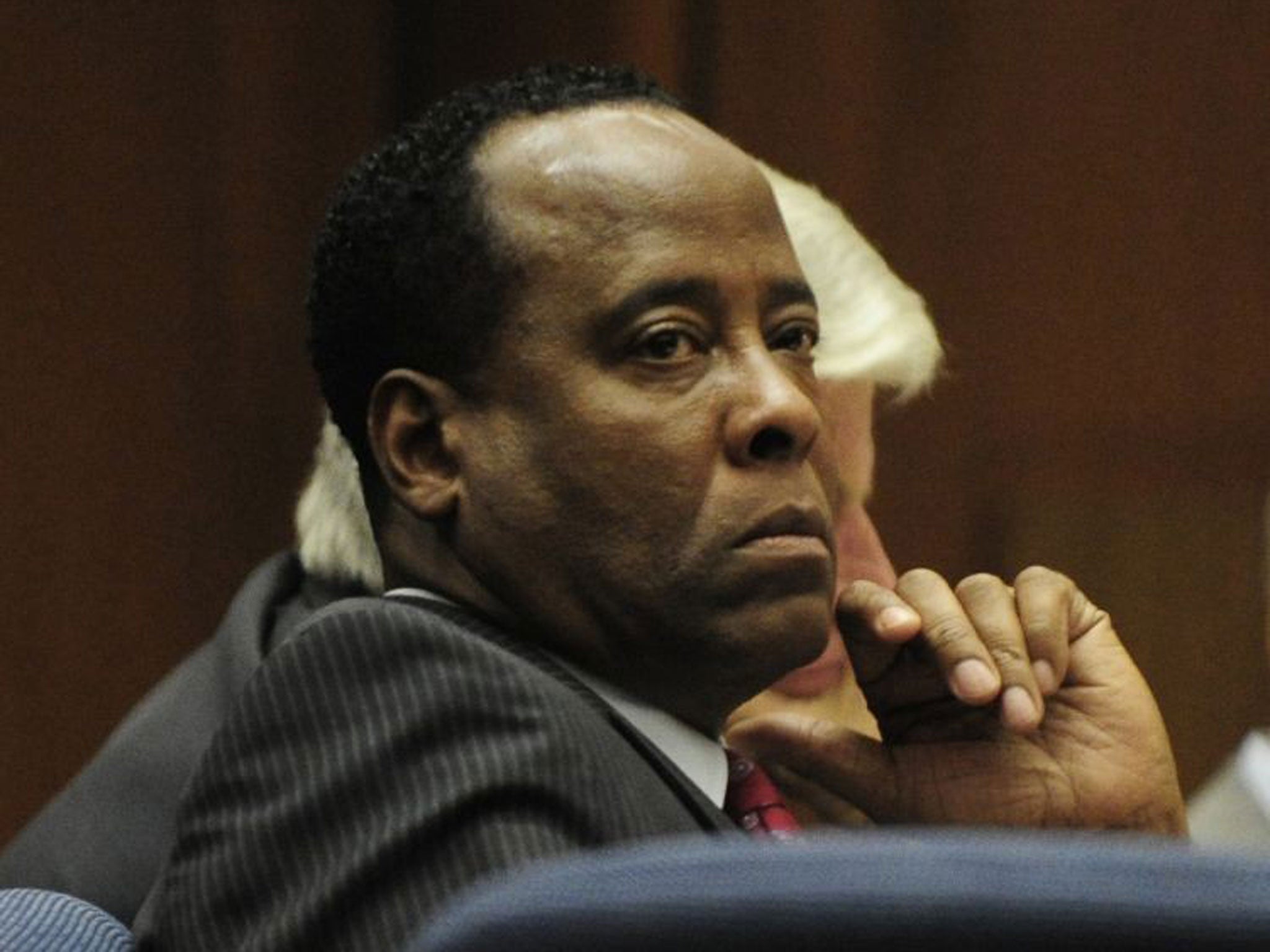Michael Jackson ‘accidentally killed himself’ claims pop star’s former doctor Conrad Murray
‘He was a drug addict. Michael Jackson accidentally killed Michael Jackson,’ the convicted cardiologist claims

Your support helps us to tell the story
From reproductive rights to climate change to Big Tech, The Independent is on the ground when the story is developing. Whether it's investigating the financials of Elon Musk's pro-Trump PAC or producing our latest documentary, 'The A Word', which shines a light on the American women fighting for reproductive rights, we know how important it is to parse out the facts from the messaging.
At such a critical moment in US history, we need reporters on the ground. Your donation allows us to keep sending journalists to speak to both sides of the story.
The Independent is trusted by Americans across the entire political spectrum. And unlike many other quality news outlets, we choose not to lock Americans out of our reporting and analysis with paywalls. We believe quality journalism should be available to everyone, paid for by those who can afford it.
Your support makes all the difference.Michael Jackson’s former personal physician has protested his innocence after serving half of a four-year prison sentence for his role in the pop star’s death, insisting the singer accidentally ended his own life after injecting himself with a lethal dose of a surgical anaesthetic.
Conrad Murray was convicted in 2011 of involuntary manslaughter. Found guilty of causing the 50-year-old singer’s death in 2009 by giving him the anaesthetic propofol, he was given a four-year jail sentence.
Now, after being released early from a Californian prison, and with an appeal against his conviction before the courts, he has spoken out publicly for the first time, claiming that it was “Michael Jackson who accidentally killed Michael Jackson.”
“I did not kill Michael Jackson,” he told the Mail on Sunday. “He was a drug addict.”
According to Murray, whose medical license has been revoked, Jackson was, by the time he died, “a decrepit man”.
“He was frail. I had to force him to eat, to drink fluids. He always ate the same meal: rice and chicken.”
Financially constrained, the performer was at the time preparing for a series of comeback concerts in London. Murray said: “He was under enormous pressure. The children told him they were tired of living in hotels and rented places, but Michael was broke... He wanted to do the London shows and then buy a family home, probably in Vegas. But night after night he would tell me he didn’t feel he had the capacity to do it.”
Against this backdrop, with the singer and his children living in a rented Beverly Hills mansion, Murray was asked to join Jackson as he prepared for his tour.
On the day of his death – 25 June 2009 – Murray said Jackson returned home at 1am after rehearsals for the tour. “He was hysterical. He was begging me, ‘Please Dr Conrad, I need some milk [Jackson’s term for propofol] so I can sleep.’”
He claims that at the time Jackson was withdrawing from another drug, demerol, an analgesic that he says was being given to Jackson by another doctor. Murray says he was unaware of this.
“I had no idea Michael was getting demerol, which he had grown to love over several decades. I’ve used demerol in the emergency room. The maximum is 75mg that I would use. Michael was receiving as much as 300mg several times a week.”
“That night he just couldn’t sleep. I prescribed him drugs to help, including valium and lorazepam [an anti-anxiety treatment], but he was begging, pleading, close to tears. ‘I want sleep, please Dr Conrad, I need sleep.’ I told him, ‘This is not normal. What I’ve given you would put an elephant to sleep.’ In the other bedroom [Michael’s private chamber], the police found an open bottle of lorazepam. They found tablets in his stomach. I didn’t give him those. Michael took extra tablets. And he injected himself.”
According to Murray’s account, he did not place the singer on a propofol drip. Instead, he told the newspaper, he gave the singer a “minuscule” amount of the anaesthetic, doing so only “reluctantly”. He said that the dose would have worn off in 10 minutes.
“When I left Michael at 11.20am, he had a normal heartbeat, his vital signs were good. I left the room because I didn’t want to disturb him,” Murray said. “I believe he woke up, got hold of his own stash of propofol and injected himself. He did it too quickly and went into cardiac arrest.”
Join our commenting forum
Join thought-provoking conversations, follow other Independent readers and see their replies
Comments